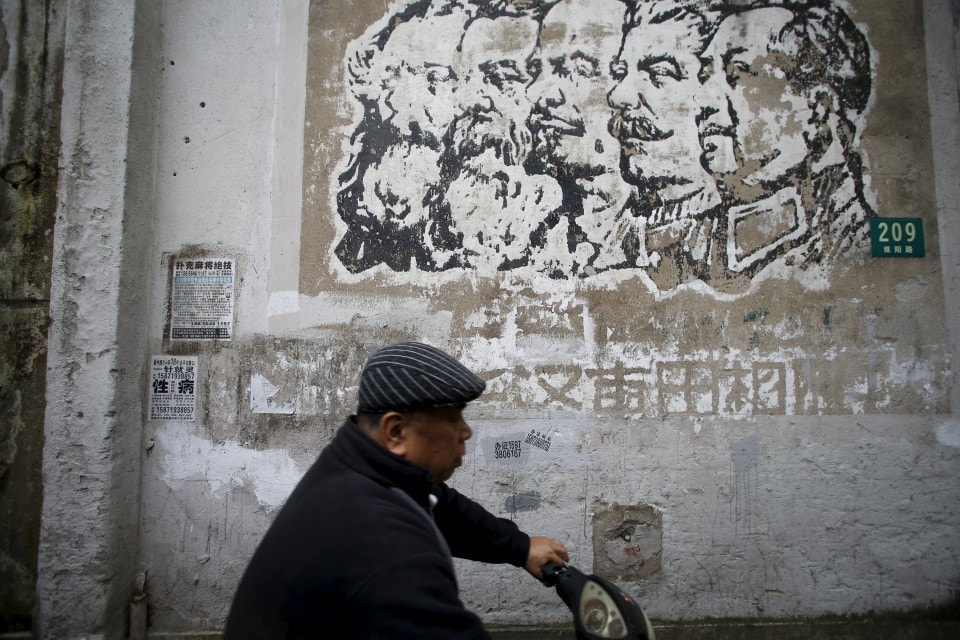Feng Xiang, a professor of law at Tsinghua University, is one of China’s most prominent legal scholars. He spoke at the Berggruen Institute’s China Center workshop on artificial intelligence in March in Beijing.
BEIJING — The most momentous challenge facing socio-economic systems today is the arrival of artificial intelligence. If AI remains under the control of market forces, it will inexorably result in a super-rich oligopoly of data billionaires who reap the wealth created by robots that displace human labor, leaving massive unemployment in their wake.
But China’s socialist market economy could provide a solution to this. If AI rationally allocates resources through big data analysis, and if robust feedback loops can supplant the imperfections of “the invisible hand” while fairly sharing the vast wealth it creates, a planned economy that actually works could at last be achievable.
The more AI advances into a general-purpose technology that permeates every corner of life, the less sense it makes to allow it to remain in private hands that serve the interests of the few instead of the many. More than anything else, the inevitability of mass unemployment and the demand for universal welfare will drive the idea of socializing or nationalizing AI.
Marx’s dictum, “From each according to their abilities, to each according to their needs,” needs an update for the 21st century: “From the inability of an AI economy to provide jobs and a living wage for all, to each according to their needs.”
Even at this early stage, the idea that digital capitalism will somehow make social welfare a priority has already proven to be a fairytale. The billionaires of Google and Apple, who have been depositing company profits in offshore havens to avoid taxation, are hardly paragons of social responsibility. The ongoing scandal around Facebook’s business model, which puts profitability above responsible citizenship, is yet another example of how in digital capitalism, private companies only look after their own interests at the expense of the rest of society.
One can readily see where this is all headed once technological unemployment accelerates. “Our responsibility is to our shareholders,” the robot owners will say. “We are not an employment agency or a charity.”
These companies have been able to get away with their social irresponsibility because the legal system and its loopholes in the West are geared to protect private property above all else. Of course, in China, we have big privately owned Internet companies like Alibaba and Tencent. But unlike in the West, they are monitored by the state and do not regard themselves as above or beyond social control.
It is the very pervasiveness of AI that will spell the end of market dominance. The market may reasonably if unequally function if industry creates employment opportunities for most people. But when industry only produces joblessness, as robots take over more and more, there is no good alternative but for the state to step in. As AI invades economic and social life, all private law-related issues will soon become public ones. More and more, regulation of private companies will become a necessity to maintain some semblance of stability in societies roiled by constant innovation.
I consider this historical process a step closer to a planned market economy. Laissez-faire capitalism as we have known it can lead nowhere but to a dictatorship of AI oligarchs who gather rents because the intellectual property they own rules over the means of production. On a global scale, it is easy to envision this unleashed digital capitalism leading to a battle between robots for market share that will surely end as disastrously as the imperialist wars did in an earlier era.
For the sake of social well-being and security, individuals and private companies should not be allowed to possess any exclusive cutting-edge technology or core AI platforms. Like nuclear and biochemical weapons, as long as they exist, nothing other than a strong and stable state can ensure society’s safety. If we don’t nationalize AI, we could sink into a dystopia reminiscent of the early misery of industrialization, with its satanic mills and street urchins scrounging for a crust of bread.
The dream of communism is the elimination of wage labor. If AI is bound to serve society instead of private capitalists, it promises to do so by freeing an overwhelming majority from such drudgery while creating wealth to sustain all.
If the state controls the market, instead of digital capitalism controlling the state, true communist aspirations will be achievable. And because AI increasingly enables the management of complex systems by processing massive amounts of information through intensive feedback loops, it presents, for the first time, a real alternative to the market signals that have long justified laissez-faire ideology — and all the ills that go with it.
Going forward, China’s socialist market economy, which aims to harness the fruits of production for the whole population and not just a sliver of elites operating in their own self-centered interests, can lead the way toward this new stage of human development.
If properly regulated in this way, we should celebrate, not fear, the advent of AI. If it is brought under social control, it will finally free workers from peddling their time and sweat only to enrich those at the top. The communism of the future ought to adopt a new slogan: “Robots of the world, unite!”
This was produced by The WorldPost, a partnership of the Berggruen Institute and The Washington Post.





